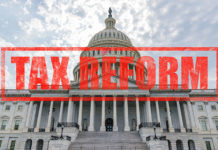Between sky-high state corporate tax rates, property tax rates, sales and capital gains tax rates, payroll tax rates and costly regulations, the nonprofit Tax Foundation’s just released its list of best and worst states in the nation to conduct business rates New York as dead last at No. 50.
To make things easier, New York Governor Andrew Cuomo (D) launched the Start-Up NY program – a “business friendly” plan to attract entrepreneurs to New York with a fetching series of new TV commercials aired across the country that promise a “Move here… and pay no taxes for 10 years” tag line – until you look at the fine print.
The advertisement states:
“The new New York is open. Open to innovation. Open to ambition. Open to bold ideas. That’s why New York has a new plan. Dozens of tax-free zones all across the state. Move here, expand here or start a new business here, and pay no taxes for 10 years. We’re New York. If there’s something that creates more jobs and grows more businesses, we’re open to it.”
The carefully worded script doesn’t actually guarantee 100 percent tax-free status and leads with this statement on the Start-Up NY website:
“Relocate to or expand within New York State, align with a college or university’s academic mission, create new jobs and contribute to the economic development of the local community.”
In addition, the program does not apply to a broad range of business categories including
- Retail and wholesale businesses
- Restaurants
- Law and accounting firms
- Medical or dental practices
- Real estate management companies
- Real Estate brokers
- Hospitality
- Retail banking
- Utilities and energy production
The program also provides no relief on business, environmental and labor regulations that drive up the costs of doing business in the state according to Iain Murray, vice president of strategy at the Competitive Enterprise Institute.
“There will be some businesses for whom margins are tight enough to allow them to start up with the tax relief rather than without it, but nowhere near the number if government really did get out of the way and allow real regulatory relief for them,” Murray told Newsmax.
To punctuate just how blind Start-Up NY authors are to the regulatory burden that remains on businesses despite the 10-year respite on state income, sales and other taxes is a section on the website that allows those entrepreneurs considering the plan with information on “98 state government agencies” that businesses will need to heed in the state.
These agencies range from the nest of bureaucrats who run the Department of Civil Service and the Department of Environmental Conservation to the Departments of Financial Services, Health and Labor.
What’s more, there is no guarantee that Start-Up NY business employees will be free and clear of taxes for the full 10 years. For higher income earners, income tax relief will be phased out after five years and will only apply to a limited number of employees at each business.
“There is an annual cap per business on the number of employees that qualify for this exemption and an annual cap statewide of 10,000 net new jobs,” the Start-Up NY site says.
Finally, the Start-Up NY “tax free” scheme is not binding on future governors or state legislatures. Once businesses put down roots in New York State, they would be hard pressed to pull up stakes and move to another state if the state amends or repeals the Start-Up NY program.





























